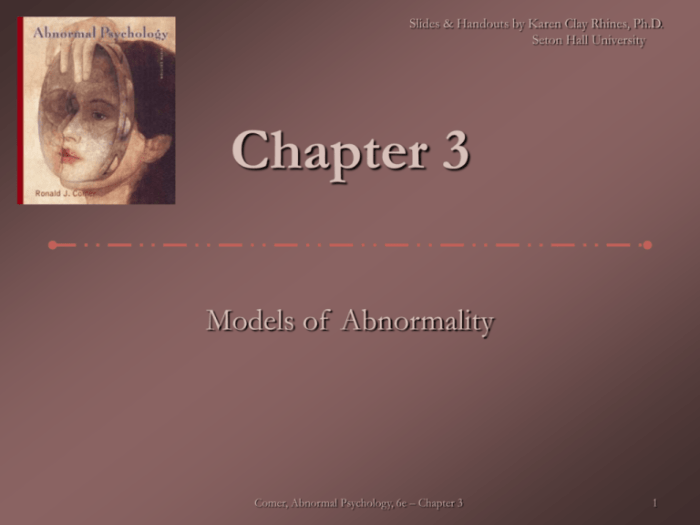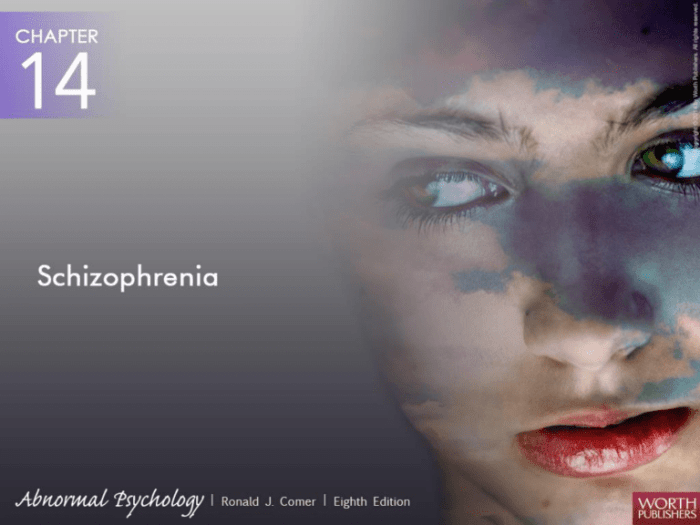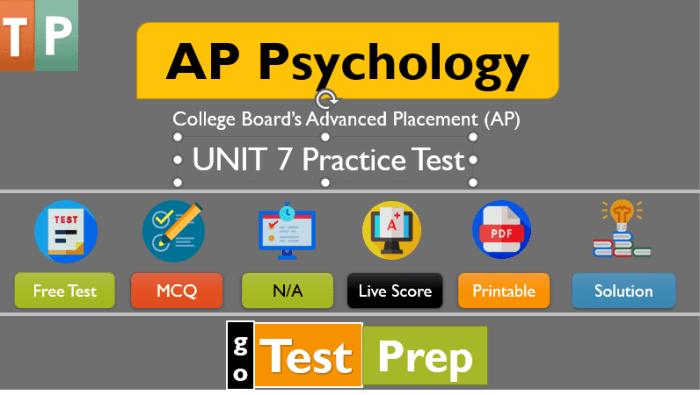Abnormal psychology comer 11th edition – Delve into the fascinating world of abnormal psychology with Comer’s 11th edition, a comprehensive guide that unravels the complexities of mental disorders and their impact on individuals and society.
This edition offers an in-depth exploration of historical perspectives, diagnostic classification, major categories of disorders, and the latest advancements in treatment approaches.
Historical Perspectives on Abnormal Psychology

Abnormal psychology has a rich history that dates back to ancient times. Early beliefs about mental illness were often influenced by superstition and religious beliefs, with individuals thought to be possessed by evil spirits or punished by the gods. In ancient Greece, Hippocrates proposed a more naturalistic approach, suggesting that mental illness had physical causes and should be treated medically.Over
the centuries, various theories and approaches to abnormal psychology emerged, including the humoral theory, which attributed mental illness to an imbalance of bodily fluids, and the demonic possession theory, which held that mental illness was caused by the influence of evil spirits.
In the 19th century, Emil Kraepelin and Sigmund Freud made significant contributions to the field, with Kraepelin developing a system for classifying mental disorders and Freud introducing the concept of the unconscious mind.
Diagnostic Classification and Assessment: Abnormal Psychology Comer 11th Edition
Today, the diagnosis of mental disorders is based on the Diagnostic and Statistical Manual of Mental Disorders (DSM-5), published by the American Psychiatric Association. The DSM-5 provides criteria for diagnosing over 200 mental disorders, based on symptoms, duration, and severity.Assessment
of abnormal behavior involves a variety of methods, including clinical interviews, observations, and psychological tests. Interviews allow clinicians to gather information about an individual’s symptoms, history, and current functioning. Observations can provide insights into an individual’s behavior in different settings.
Psychological tests can assess a wide range of cognitive, emotional, and behavioral characteristics.
Major Categories of Psychological Disorders

Mental disorders are typically classified into several major categories, including:
- Anxiety disorders: Characterized by excessive fear, worry, or anxiety.
- Mood disorders: Involve disturbances in mood, such as depression or mania.
- Personality disorders: Characterized by inflexible and maladaptive personality traits.
- Psychotic disorders: Involve a loss of contact with reality, such as schizophrenia.
Biological Perspectives on Abnormal Psychology
Biological perspectives on abnormal psychology focus on the role of neurobiology, genetics, and brain imaging in understanding mental disorders. Neurobiological research has identified abnormalities in brain structure and function in individuals with mental disorders. Genetic studies have shown that mental disorders can be influenced by both genetic and environmental factors.
Brain imaging techniques, such as MRI and fMRI, allow researchers to examine brain activity in individuals with mental disorders.
Quick FAQs
What are the major categories of psychological disorders?
Anxiety disorders, mood disorders, personality disorders, and psychotic disorders.
How is abnormal behavior diagnosed?
According to the principles and criteria Artikeld in the Diagnostic and Statistical Manual of Mental Disorders (DSM-5).
What are the different treatment approaches for psychological disorders?
Psychotherapy, medication, and hospitalization, with the choice depending on the disorder and individual needs.
